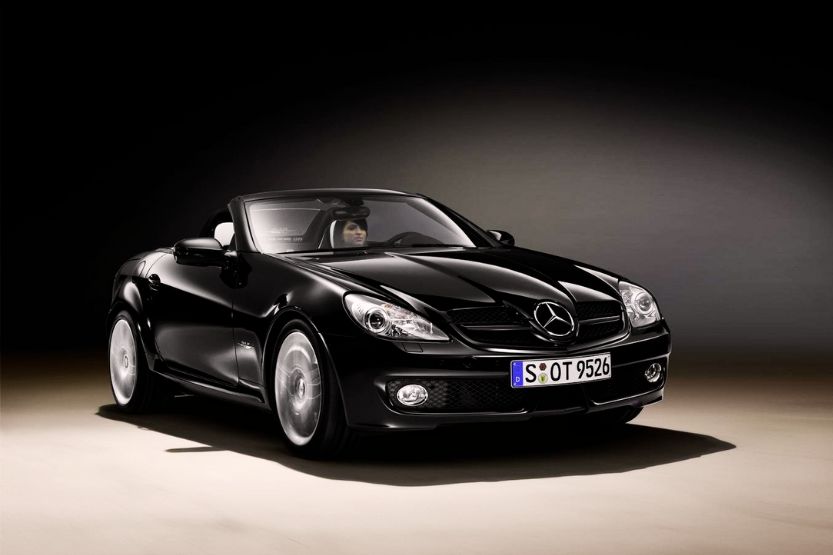Mercedes-Benz has always been known for its striking design and prestige driving. The Germans certainly know what they are doing. But how reliable are Mercedes-Benz cars?
The average Mercedes-Benz reliability rating is a 3 out of 5, which is neither good nor bad. Mercedes-Benz cars have average ownership expenses of roughly $908 per year, which is higher than the $652 average for all other models. Unscheduled repairs require an average of 0.7 visits per year, compared to 0.4 for all models. Additionally, an average of 13% of repairs on all Mercedes-Benz models is considered severe.
It’s no secret that older Mercedes cars weren’t known for being so reliable. The modern ones, however, are just as reliable as their competitors on the market.
Read on to learn more about the reliability of the Mercedes-Benz brand and which used car is the most reliable.
Mercedes-Benz Reliability Guide

Average Reliability Rating of 3.0 Out of 5.0
Mercedes-Benz is not the perfect car regarding reliability, but it is not the worst. It has an average reliability rating of 3.0 out of 5.0. Mercedes-Benz is ranked 27th out of 32 automakers, and the rankings are based on 345 different car models.
Average Annual Repair Cost
Moreover, a Mercedes-Benz car’s average annual repair cost is $908, which covers both planned and unscheduled repairs. This certainly directly impacts the cost of ownership, meaning that the more reliable your car is, the lower the cost of ownership.
Price
In the United States, Mercedes-Benz sells more than 20 models, ranging from sedans to SUVs. The average sedan would cost roughly $33,000. A base-model SUV will cost you about $36,000, but you could easily spend up to $100,000 on the Mercedes-Benz of your dreams.
Performance
Mercedes cars provide a smooth and comfortable ride while reaching high speeds with minimal effort.
Mercedes also strives to maximize the fuel efficiency of each car. So, rest assured that the gas station will give your car far greater mileage.
Moreover, Mercedes builds each car with the necessary equipment to withstand the harshest conditions possible. This means that you can drive a long distance before your Mercedes needs some repairs.
Safety
Mercedes is a brand that provides the utmost in comfort and safety and has always been on the cutting edge, from built-in cameras to mechanical controlling computer systems.
In the 1950s, Mercedes engineers invented the concept of the crumple zone and later the anti-lock braking system in the late 1970s.
Service and Repairs
Car owners’ world-class service makes Mercedes one of the most reliable brands today. Every repair facility provides a service above and beyond the norm, as Mercedes-Benz takes great pride in its name.
All Mercedes service technicians have received full training to provide exceptional assistance and maintenance for every car. You will be amazed by the level of professionalism and expertise with the Mercedes name.
Are Mercedes Cars Reliable After 100k Miles?
Mercedes builds some of the most reliable cars, but once you reach 100k miles, they will start to have issues.
Minor Issues at 50,000 Miles
The question of which Mercedes-Benz models have issues not easy to answer because there are many models. Some may experience minor issues as soon as 50,000 miles, while others wait until 100,000 miles.
Mercedes Offers a 4-year or 50,000-Mile Warranty
Furthermore, most Mercedes-Benz models have a 4-year or 50,000-mile warranty. If your car has a problem during this time, you can get it fixed or replaced.
Even if a warranty covers it, buying a used Mercedes-Benz is risky because not everything that could go wrong will be covered.
Spark Plug and Steering and Suspension Systems Problems
For instance, spark plug problems are common in many Mercedes-Benz models, whether we are talking 100 miles or 100k miles.
The steering and suspension systems are other issues you should be aware of once a Mercedes-Benz logs 100,000 miles. The suspension system is comprised of the following:
- Springs,
- Wheels,
- Tire air,
- Linkages,
- Shocks,
- Control arm bushings,
- Tie rods, and
- Ball joints.
The replacement cost for the shocks and struts is not that cheap. It may cost between $354 and $446 for replacement and between $1,864 and $1,870 to buy the parts.
S-Class W220 Air Suspension Issues
Some Mercedes-Benz models experience issues with the air suspension after 100K miles, such as the S-Class W220, the first Mercedes-Benz car to feature air suspension.
Remember that the car’s brand, model, and condition significantly impact the price of replacing the suspension. Suspension repairs cost more for luxury cars like Mercedes-Benz.
Underbody Rust
Even if you do not drive a luxury car, a car with a lot of underbody rust might take a professional much longer to reach and remove certain parts, which increases the cost.
Finally, the connector may start leaking transmission fluid after 100k miles, while the valve body may result in incorrect shifting. Check these components every 100,000 miles on your Mercedes.
12 Most Common Mercedes-Benz Problems

1. Cracked Driveshaft Flex Discs
These damaged parts will result in excessive movement and vibration, which will be audible through the center floor of your car.
If you do not fix them, it could damage the driveshaft center support bearing or, in the worst-case scenario, the transmission or differential. This problem is common in the 2008 and 2011 model years.
We are talking 71,330 miles on average. Also, expect to pay around $143 to $180 for a diagnosis.
2. Oil Seepage on the Back of the Cylinder Heads
The plastic expansion plugs on the back of the cylinder heads can sometimes cause oil seepage and/or leaking. This is often misdiagnosed as leaking valve covers.
These plastic plugs seal off the access ports to the camshafts. Unattended oil leaks will eventually flow down the back of the engine and onto the ground. You will need to replace them every 60,000 miles.
Replacement is easy and should be a part of routine maintenance. The most impacted model years are 2008 to 2011, with a mileage range of 113,165 miles.
3. Squeaking and/or Worn Brake Pads
Some Mercedes owners claim that their brakes usually squeak, causing the brake rotor to become uneven and develop a lip at the outside edge.
This will require replacing both the braking rotors and pads. The most impacted model years include 2008, 2010, 2012, and 2014, with a mileage range of 20,000 to 50,000 miles.
4. Failed ABS Modulator
The anti-lock brake system (ABS) modulator fails early due to contaminated brake fluid. We recommend that you flush the brake fluid every two years or so to avoid any potential contamination. The most impacted model years are 2008 to 2010.
Brake bleed usually costs between $126 and $159.
5. Irregular Shifting
Mercedes cars with a 7-speed automatic transmission may sometimes have jerky shifting from first to second gear or from third to second. A malfunctioning internal component is the cause of the jerky shifting.
So, you will need to take out and disassemble the transmission to make the necessary repairs. The most impacted model years are 2006 to 2016, with a mileage range of 73,615 to 94 877 miles.
6. Faulty Camshaft Adjuster Solenoid
A malfunctioning sensor can sometimes damage the camshaft adjuster solenoid or cause some problems with the check engine light indicator and some other drivability issues.
Mercedes has issued service bulletins on such problems to provide detailed repair guidance based on the recorded fault codes.
The most impacted model years are 2006 to 2012, with a mileage range of 86,045 t 92,031 miles.
The cost of testing and diagnosing the check engine light indicator is usually around $143 to $180.
7. Failed Crankshaft Position Sensor
This can cause some problems with the engine performance, which may well lead to stalling and/or “crank no start” errors. The most impacted model years are 2006, 2010, 2014, and 2016, with an average mileage of 85,665 miles.
The cost to diagnose a “no start” is between $143 and $180.
8. Cracked Front Thrust Link Bushings
These bushings are loaded with fluid to help minimize vibration. When they crack, the oil will seep out and, along with the excessive suspension movement, lead to uneven and early tire wear. The most impacted model years are 2006 and 2011, with an average mileage of 78,810 miles.
It costs around $143 to $180 for a general diagnosis.
9. Rust Issues
Mercedes-Benz cars appear to rust out more quickly and easily than other cars, which are usually susceptible to rust damage over time. The front bumpers and fenders, the floorboards, and even the area behind the license plate are common places for rust to accumulate in a Mercedes-Benz car.
10. Misfiring Engine
It is common sense that most car engines will eventually fail to work properly after a long period. But, some Mercedes models experience engine misfires even before reaching 100k miles.
Even though changing the spark plugs is a simple solution, it is still not a good sign to experience such a thing early on with your car.
11. Transmitter Issues
To the German automaker’s credit, Mercedes cars feature a stronger 5-speed transmission than other cars. The valve body and the 13-pin connector usually cause transmission problems. While the latter results in poor shifting, the former produces transmission fluid leakage.
12. Check Engine Light
The check engine light can sometimes cause drivability issues for some Mercedez-Benz owners.
Again, are Mercedes cars reliable? Mercedez-Benz’s average reliability rating is 3 out of 5, with an annual average repair cost of $908. This ownership cost is average compared to other brands.
Most Reliable Used Mercedes Cars

Every year, Mercedes-Benz sells more than 1.8 million cars worldwide. There is a reason for this, and it is German engineering at its best, but new Mercedes-Benz cars can be quite expensive for some people.
The good thing about the Mercedes brand is that you can still buy a used car and enjoy all the amazing features of the Mercedes-Benz. But which model is the best and most reliable? There is a wide range of options available so we will walk you through the top five:
1. 2008 and 2009 Mercedes-Benz E-Class
Even though it is a Mercedes-Benz, it will not be in brand-new condition. Make sure you get your 2008 or 2009 E-Class from a reputed luxury automobile dealer if you are considering either model.
They will put the car through a rigorous testing process to ensure you get an excellent car.
2. 2009 Mercedes-Benz SLK-Class
The 2009 SLK-Class is undoubtedly defying age norms. Its classic style and flexible convertible roof continue to draw attention everywhere they go.
It comes with a 3.0-liter V6 engine, heated leather seats, and an aerodynamic design. The SLK roadster truly combines the best aspects of the Mercedes-Benz name.
3. 2010 Mercedes-Benz C-Class
The C-Class should come to mind when you think about Mercedes. Now, the question is, are older Mercedes cars reliable? While the C-Class is relatively old, it still features the traditional body and engineering for which the Mercedes-Benz brand is known.
The C-Class may not have all the cutting-edge technology you find in other Mercedes models, but it is affordable, has room for four passengers, and is undoubtedly reliable.
4. 2012 Mercedes-Benz E-Class
The 2012 E-Class tops the list of “most reliable used cars under $20,000” in a U.S. News & World report.
This is why this is the case: the twin-turbocharged V8 engine has some serious kick, and the regular V6 is nothing to laugh at. Even more so, it was rated as “absolutely safe” (10 out of 10) in that same report.
5. 2015 Mercedes-Benz GLK-Class
This one is often ranked among the best-used Mercedes and rounds out our top 5 list. Both J.D. Power and U.S. News & World recommend this used SUV.
The 2015 GLK will cost you close to $30,000, while the other models we listed above are more affordable than many new cars of any make or model.
But, given that it is slightly more modern than the previous four models, it still features many of the bells and whistles you see in brand-new Mercedes-Benz cars today. Moreover, it has one of the nicest designs of any SUV ever.
Why Is the Mercedes-Benz E-Class Reliable?
Simpler Suspension Components’ Design
The E-class has fewer reliability problems than other models. The suspension components’ design and complexity are also simpler because the overall weight is less than the other models.
Cylinder Walls Feature a “Nano Slide Coating”
Mercedes has placed a very thin coating on the inner surface of the cylinder to lessen friction between the piston and piston rings.
Moreover, the cylinder walls are coated with another layer of iron-carbon alloy using twin-wire arc spraying (TWAS).
Cylinder Heads Are Made of a Unique Aluminum Metal Alloy
The cylinder heads for both gasoline and diesel engines are made of a unique aluminum metal alloy and contain intake and exhaust valves, roller-equipped rocker arms, and hydraulic lifting components.
Mercedes Conducts Rigorous Tests
Mercedes put the engines of the E-class through rigorous testing during the first stages of the car assembly.
Multi-spark Mode for Gasoline Engines
Special features of the gasoline engine include a multi-spark mode. This mode raises the combustion temperature and speeds up the engine’s ability to achieve an operating temperature. The spark plugs of the Mercedes-Benz E-class’s engine produce an ignition voltage of 15000 to 45000 volts.
3-year Standard Warranty
Finally, the E-class has a 3-year standard warranty, and the leather seats and dashboard trim are made of exceptionally durable material.
So, Should You Buy a Mercedes-Benz?
Mercedes-Benz is one of the most popular choices among buyers, and rightly so. You are getting a high-end, luxurious car that is enjoyable to drive. You will love the stylish design, and the features that come along with it will suit your needs.
A lease may be your best bet if you buy a brand new one, whether it is the A-class, B-class, or even the enormous G-wagon.
And even better, if you choose a fully-maintained lease, you can drive with confidence, knowing that any problems that might arise in the future with your Mercedes are covered.
Sure, Mercedes-Benz is not perfect, and as we laid out above, electrics are a major problem with their cars, which is why they have an average reliability score of 3 out of 5, but the car is worth the money.
Mercedes-Benz ratings for overall performance and build quality are high. So, it depends on what matters to you as a driver and what you are looking for.
Conclusion – Is Mercedes a Reliable Car?
Mercedes-Benz is not the ideal car for reliability, but it is not the worst either, and it has some excellent features that you will not find in its competitors. Overall, Mercedes-Benz has an average reliability rating of 3.0 out of 5.0.
Average annual ownership costs for Mercedes-Benz cars are around $908, which is more than the $652 average for all other models.
All in all, you can’t go wrong with Mercedes-Benz! It has great built-in safety features and performs well on the road.
Read next:

![Are Mercedes Expensive to Maintain? [Mercedes Maintenance Costs] are mercedes expensive to maintain](https://roadsumo.com/wp-content/uploads/2022/06/are-Mercedes-expensive-to-maintain-150x150.jpg)
![Are Saabs Good Cars [Issues, Reliability, Should You Buy?] are saabs good cars](https://roadsumo.com/wp-content/uploads/2022/03/are-Saabs-good-cars-150x150.jpg)
![Are Nissan Altimas Good Cars? [Nissan Altima Reliability] are nissan altimas good cars](https://roadsumo.com/wp-content/uploads/2022/04/are-Nissan-Altimas-good-cars-150x150.jpg)
![Are Acuras Good Cars? [Problems, Reliability, Maintenance Costs] are acuras good cars](https://roadsumo.com/wp-content/uploads/2022/06/are-Acuras-good-cars-150x150.jpg)

![Are BMWs Good Cars? [Reliability, Problems, Life Expectancy] are bmws good cars](https://roadsumo.com/wp-content/uploads/2022/04/are-BMWs-good-cars-150x150.jpg)


